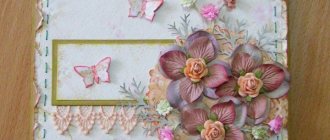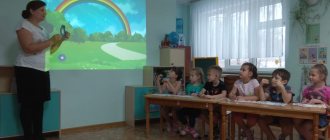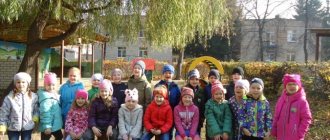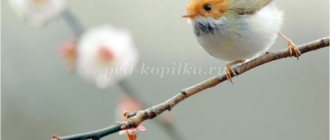acquaintance with theatrical professions lesson for the senior group
Lesson notes
"Introduction to theatrical professions"
(senior group)
Program content
. Introduce children to some theatrical professions. Provide the opportunity to try yourself as a director, costume designer, decorator, actor; feel the importance of each profession. Demonstrate the capabilities of makeup when creating various images. Continue teaching children to creatively solve problem situations.
Material and equipment.
Sets of costumes, wigs, “noses”, small attributes, decoration elements, flannelograph, handouts for children, audio recording of Baba Yaga.
Vocabulary work.
Director, actor, costume designer, decorator.
Progress of the lesson.
Educator
(greets guests). Hello, come in, take your seats. Today you came to the theater studio. What is theater? Why do people go to the theater? (children's answers). That's right, theater is a holiday. Most people come to the theater to relax and watch a performance. But for some people, theater is work. Think about who works in the theater? (children's answers).
Let's play: I will be an actress, and you will be the directors. Offer me the roles of fairy-tale characters. (Listens to the children’s answers and chooses the role of Baba Yaga).
Educator
(examining himself). Do I look like Baba Yaga in these clothes? (children's answers). Of course not. You need a special suit. In the theater there must be a person who selects costumes for the actors, a costume designer. (Children repeat this word). Now you are turning from directors into costume designers. Please choose the right suit for me.
Children come to the table with costumes and together decide what clothes and shoes they need to choose for the role of Baba Yaga.
Educator
(puts on a suit). Can I go on stage now? (If the children do not guess, leading questions lead them to the idea that makeup and a wig are needed). Do you want to be make-up artists? First, try to match the makeup to these faces (Children do the task at the tables).
Educator
(speaks in a gentle voice and waltzes). Now I have a costume, wig and makeup. Do I look like Baba Yaga? What are my movements and voice like? (children's answers). Now we will become directors again and you will have to show me how to act in order to be like our heroine. (Children show movements, depict a character’s gait, facial expressions to the music. The teacher consults with the children and chooses the most expressive sentences).
Educator.
I am the spitting image of Baba Yaga. I always live in kindergarten, I walk along the street with the teacher. Or do I live somewhere else? (children's answers). That's right, I live in the forest. How can you depict a forest in the theater? What is needed for this? (after listening to the children’s suggestions, he turns his attention to the decorations). Now we will become decorators and try to depict a forest. (children, using decoration elements, complete the task on a flannelgraph).
Project at the preschool educational institution “I want to become an artist!”
- February 7, 2014
Conference “Project activity in an educational institution - 2014”
Nomination “Pedagogical project in a preschool institution”
Relevance of the topic
A profession is work to which a person devotes his life. What is a creative profession? What qualities should people in these professions have? By answering these questions, we carry out the first stage of introducing preschoolers to professions.
So, a creative profession is a profession where a person embodies his creativity, talent, and skill.
On January 27, 2014, the grand opening of the Year of Culture took place in Ulyanovsk. Introducing a child to the cultural values of his native land and meeting people of creative professions is the primary task of preschool teachers.
When my children and I talked about what they would like to become when they grow up, many found it difficult to answer. More precisely, they were confused about the names of professions. We noticed an insufficient level of understanding about the variety of professions and labor functions.
Introducing a child to the world of adults is one of the complex and significant problems in modern life. Due to age characteristics, a preschool child, while playing, penetrates into the world of adults, learns about their life, activities and “takes on a profession for himself.”
At the moment, more than 40% of the children in the group want to become artists, perform and delight the audience. But it was still not possible to tell preschoolers about famous fellow countrymen-artists, about their creative activity and its significance in the lives of other people, about the difficulties of this profession, about the sincere desire to please the audience, and not to show off, about how not to get “star sickness”. . This is how the idea of the project “I want to become an artist!” was born.
1. Type of project: practical-creative project.
2. The goal of the project: to create conditions for the active use of the experience of children’s theatrical play in their creative activities.
3. Project objectives:
NGO “Social and communicative development”
1. Continue to introduce preschoolers to the profession of an artist. Introduce preschoolers to famous fellow countrymen artists, their professional activities and its significance in the lives of other people.
2. To consolidate children’s knowledge about such creative professions as actor, director, make-up artist, screenwriter, about their work processes, objects and tools.
3. Cultivate respect for people of creative professions who put a lot of effort and soul into gaining recognition from the people.
4. Cultivate dedication, hard work, and the desire to bring joy to the audience.
NGO "Speech Development"
1. Contribute to the development of free communication with adults and peers during the implementation of the project. Help to master forms of speech etiquette.
2. Continue to improve children’s artistic and speech performance skills when reading poems and dramatizations (emotional performance, natural behavior, ability to convey their attitude to the content of a literary or musical work with intonation, gesture, and facial expressions).
NGO "Artistic and Aesthetic Development"
1. Contribute to the formation of interest in theater, musical and literary works.
2. Develop creative independence, aesthetic taste in conveying an image; clarity of pronunciation. Strengthen the ability to use expressive means (posture, gestures, facial expressions, intonation, movements).
3. To develop the ability to implement fantasy ideas in creative activities, developing partnerships with peers.
4. Develop the ability to listen to and understand musical and literary works, and respond emotionally to them.
Interaction with parents and social partners.
1. To interest parents in the development of children’s creative activities, ensuring the development of individual abilities and talent.
2. Involve parents in various forms of joint musical and artistic activities with children in kindergarten, which contribute to the emergence of bright emotions, creative inspiration, and the development of communication
3. Expand opportunities for cooperation with cinemas and libraries, and intensify attendance at performances, concerts, and competitions. Take an active part in them.
4. Project implementation period: 1 month.
5. Project participants: children; parents; representatives of society; teachers: educators, speech therapist, psychologist, music director.
6. Educational areas: “Social and communicative development”, “Speech development”, “Artistic and aesthetic development”.
Expected results:
1. During the conversations, children get acquainted with the work of Yulia Viktorovna Milagina, director of the choreographic ensemble “Sonnet”, gold medalist of the Delphic Games, winner of the Grand Prix of the international festival “Youth” of the Silikatno Children’s Art School, with the soloist of the folk group “Volga Tunes” Stranina V. AND. (leader – Sergey Mikhailovich Silachev), vocalists Evgeniy Usov and Ksenia Mashkova.
2. Children give a motivational assessment of the choice of their future profession, understanding all its complexity.
4. Show a need to attend performances, concerts, and competitions.
5. Independently organize role-playing games “Theater”, “At the concert”, “Guess the melody”, negotiating and listening to the opinions of peers.
6. Parents: help in preparing costumes and scenery. Proposals for expanding and improving the project.
Parents have become like-minded teachers, and for this purpose a variety of joint activities of teachers, children and parents have been organized, which includes:
- equipping the group room with a new multifunctional screen, which is the stand of our Skazka theater, a screen for a puppet theater and decoration for a performance, as well as games, new dolls for the theater;
- sewing and purchasing costumes for tetras and performances
- participation in folk festivals and entertainment, concerts;
- organizing excursions around the city, to a museum, to a cinema, etc.;
- joint cleanup days, etc.
Having been involved in musical children's theater for 16 years, you involuntarily pass on your love for music, songs, dances, dramatization to your students, and notice their individual abilities for creative activity. Every person is born with talent, I want those little sparks of talent not to go out, but to develop further. And when your former and present students perform on the “big” stage, you are glad that this is your merit.
Application. Project
Author: Meshcheryakova Lyudmila Lyudvigovna, teacher of the highest qualification category, MDOU “Solnyshko”, Sengilei, 33 years of teaching experience.



